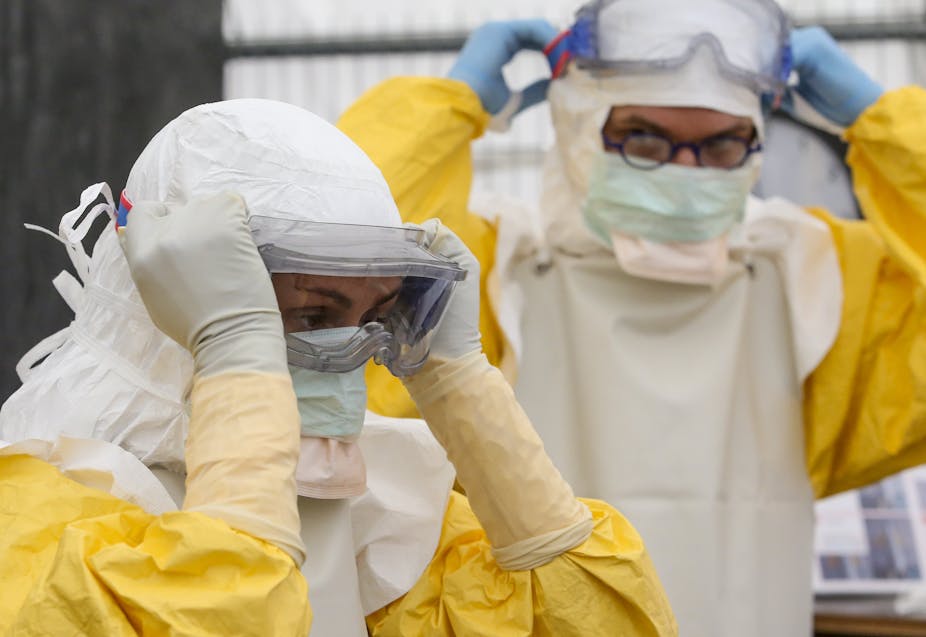All too predictably, the Ebola crisis has been accompanied by any number of breathless headlines – not all of them sensible. “Experts fear ISIS jihadists may infect themselves to spread virus in West,” appeared in the Daily Mail a few days ago, following up on various reports in other countries. Not so, according to senior security people in the US. Jeh Johnson, the homeland security secretary, made clear a few days later that, “we’ve seen no specific credible evidence” to support anything of the sort.

On the more general substance of the Ebola threat, the Daily Mail was also on form. It reported: “Global threat of Ebola: From the US to China, scientists plot spread of deadly disease across the world from its West African hotbed.” Readers were told that the disease could reach UK shores in as little as three weeks – and this several weeks ago. The Independent meanwhile ran with, “Ebola outbreak: virus could reach UK and France by the end of the month, scientists claim.”
The research these two articles referenced was by a team from three US institutions. Using a modelling study similar to those carried out by meteorologists to predict the weather, the team stressed it was using assumptions and approximations that would need modified as more information became available.
It concluded, “the risk of international spread of the Ebola virus is still moderate for most countries”. The real message was that it is not time to be bulk-buying protective masks and hazard suits just yet. We simply need to be aware that the disease could reach the UK, and the government needs to take protective measures to minimise the risk.
MMR and all that
When it comes to sensationalist newspaper headlines, the most memorable might be the supposed link between the MMR (measles, mumps and rubella) vaccine and autism. Research later showed the media created the false impression that the medical research community was divided over the plausibility of the link. In actual fact, scientists all thought the research claiming the link was severely flawed and its conclusion invalid.

At the University of Aberdeen, my research team has reached similar conclusions from research into UK newspapers’ portrayal of antidepressants. With headlines like “Antidepressant Drugs Don’t Work - Official Study” (The Independent), we found that the UK press paints a fairly negative and occasionally incorrect picture of antidepressants, which might be affecting the public’s perception of them. We are now conducting a follow-up project exploring the impact on the public in detail, as well as on lawmakers and people suffering from depression.
So much for Leveson
Health and science journalism came up during the Leveson inquiry. As part of her evidence to the inquiry, Fiona Fox, head of the Science Media Centre, made several mentions of the MMR controversy and other inaccuracies in science reporting. Cardiff University School of Psychology meanwhile submitted a report questioning how to ensure a future of quality science reporting in the UK.
As a result, the inquiry recommended that a new regulatory body should “consider encouraging the press to be as transparent as possible in relation to the sources used for stories.” It said that this should include providing any information that would help readers to assess the reliability of a source, plus providing web links to: “publicly available sources of information such as scientific studies or poll results.”
In May 2012 the Science Media Centre followed this up with a set of guidelines on science and health reporting. Yet IPSO, the new UK press regulator, makes no mention of these guidelines or the Leveson recommendations either in its code of practice or on its website.
The latest coverage of the Ebola crisis suggests that the regulator’s failure to follow either the Leveson recommendations or the Science Media Centre’s guidelines is a serious omission. Without meaning to minimise the seriousness of Ebola, don’t be surprised if we are told further down the line that the UK public was misled about the risks. It is one more reminder that, despite Leveson and despite everything that has happened to the press in recent years, nothing much in health and science journalism appears to have changed.

